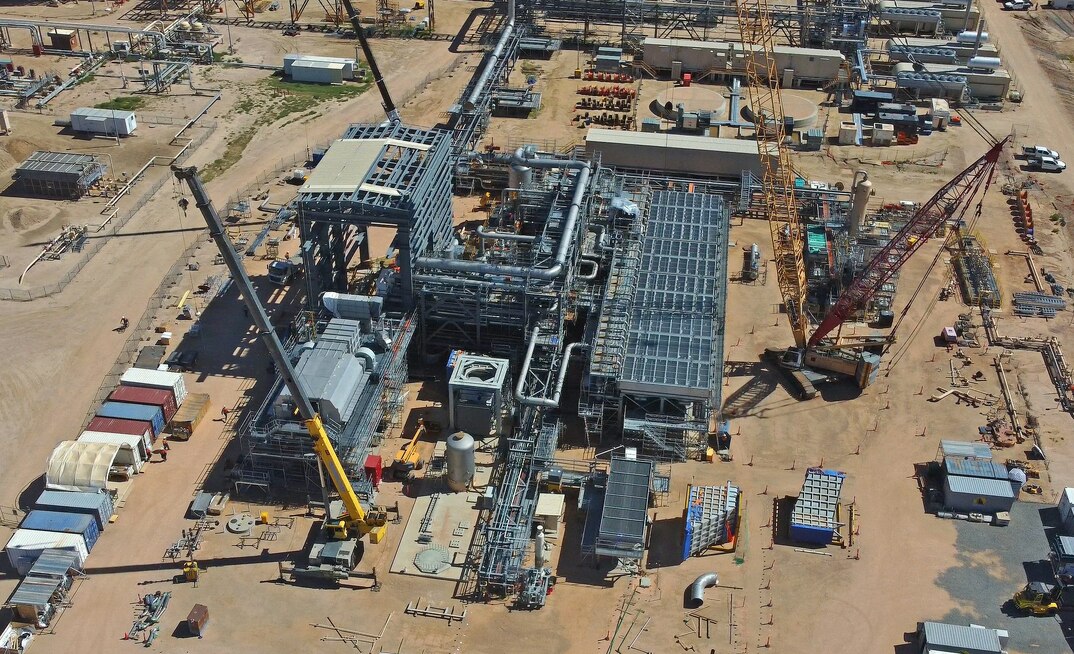Australia could unlock up to $600 billion in revenue by creating a carbon capture and storage (CCS) industry and becoming a storage hub for the Asia-Pacific region, reports global energy research firm, Wood Mackenzie
In an article published in the 2024 Australian Energy Producers Journal, Wood Mackenzie emphasised that Australia's CCS opportunity is rooted in facilitating other countries' net zero ambitions.
According to the article, Australia has far higher geological CO2 storage potential than it needs to store emissions from its power generation and industrial sectors from 2030 to 2050.
Meanwhile, Australia's key trading partners, such as Japan and South Korea, have limited opportunities to store all their emissions domestically and are looking for regional storage sites to support their net zero goals.
YOU MIGHT ALSO LIKE
Stephanie Chiang, Research Analyst for Carbon Capture, Utilisation and Storage at Wood Mackenzie, said: "USD325–385 billion (AUD491 - 582 billion) in revenue can be gained from opening all of Australia's excess storage capacity to regional emitters, assuming a transport and storage fee of USD33–39/tCO2."
Clear policies and regulations are crucial for the development of the CCS industry, despite the abundance of CO2 storage potential. According to Wood Mackenzie, Australia's competitive edge lies in its regulations for CO2 storage.
Australia passed laws last year permitting the international transport and offshore storage of CO2 and the 2024-25 Federal Budget committed $32.6 million to support regional cooperation and establish the regulatory frameworks needed to enable CO2 imports and exports.
However, Chiang emphasises that Australia needed to provide clearer direction and greater regulatory certainty for project developers and potential customers seeking long-term certainty.
The article highlights the importance of government support for anchor projects and private sector commitment to project execution.
Australian Energy Producers Chief Executive Samantha McCulloch said the economic and emissions reduction opportunities was why the oil and gas industry had been calling for a national CCS roadmap.
"Net zero is not just a challenge, it's an opportunity – and it's a huge economic opportunity for Australia," she said. "CCS can attract new investment, new revenues and new jobs in a new net zero industry.
"Australia knows how to be a resources and energy powerhouse and has built a gas industry that is the envy of the world. Now it can become a decarbonisation powerhouse."
The journal will be released as part of the 2024 Australian Energy Producers Conference & Exhibition in Perth starting today, May 20.
ENB's CCS Report 2024 also finds that CCS could be the much-needed magic bullet for Australia's decarbonisation drive.
Policy makers in most of the world's advanced economies have committed to decarbonise and Australia's leaders are no exception. Crucially, carbon capture and storage (CCS) could be the magic bullet needed – potentially a very effective solution to the decarbonisation and net zero challenges.
However, unlike Northern America and Western Europe, the Australian government does not appear to see the same urgency in encouraging and implementing CCS at scale, as a key tool in helping to hit decarbonisation goals. In our special report, Energy News Bulletin (ENB) explores the current status and potential of CCS in Australia, as well as its performance relative to other global jurisdictions.
ENB finds that the carbon intensity of upstream oil and gas operations are falling across the globe but not fast enough. Indeed, upstream oil and gas companies are often depicted as the villains in the most common global climate emergency narratives. It's no different in Australia, where energy giants, such as Woodside Energy and Santos, are all too often vilified by climate activists and diehard renewable energy advocates. However, as ENB explains in this report, strides are being made to decarbonise oil and gas production, reflected by the sharp falls in the overall emissions intensity of upstream operations globally – a measure of how much carbon, methane and other greenhouse gases are emitted per unit of energy produced. And CCS arguably has a role to play in net zero decarbonisation plans, especially as global hydrocarbons production continues to rise.























